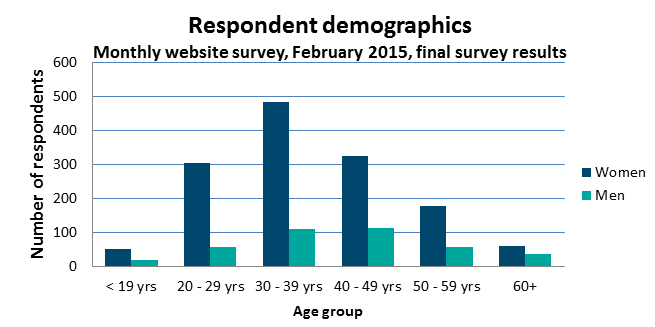The internet has significantly changed the way that people live and work, with many families now relying on digital tools for communication, employment, education and entertainment. Digital communication tools such as Facebook and email can help families save time and money contacting friends and extended family members, and simplify communication when families are apart. The internet can allow parents to telecommute, work at home as they raise young children, and easily access learning experiences.
Introduction
The internet has significantly changed the way that people live and work, with many families now relying on digital tools for communication, employment, education and entertainment. Digital communication tools such as Facebook and email can help families save time and money contacting friends and extended family members, and simplify communication when families are apart. The internet can allow parents to telecommute, work at home as they raise young children, and easily access learning experiences.
Unfortunately, recent studies also suggest that the internet can have negative effects on family relationships. High internet use may lead to conflict between parents and adolescents over teenagers’ lack of social skills and it can mean that people neglect their family relationships. Frequent use of online pornography or engaging in online affairs may jeopardise partner relationships. Even though relationship infidelity is not new, online relationships can develop more quickly due to lowered inhibitions, the lack of physical cues and the ease of exchanging information (Morris, 2002).
Use of social media can generate positive feelings of connection, but alternatively increase feelings of loneliness, and the emptiness of illusory and false or shallow connections. The internet can also make it easy for a person to stalk or bully someone else, or make personally damaging comments that can be read instantly by a wide audience (Morris 2002, Mitchell et al. 2005).
In February 2015, Relationships Australia’s monthly online survey asked visitors to our website to report if their partner’s use of the internet had caused problems for them in their past and current relationships.
Previous research finds that…
In a 2011 survey conducted by Relationships Australia Victoria, commonly cited relationship issues relating to the negative impacts of digital communication tools included[1]
- use of internet pornography, cybersex and online dating and gambling sites;
- partners resorting to the use of secret SIM cards and email addresses to maintain infidelities;
- online stalking, checking and monitoring of partners’ emails and messages;
- hacking into ex-partners’ Facebook accounts; and
- use of the internet and technology to the exclusion of one’s partner.
Results from the practitioner survey revealed:
- 80% of respondents had counselled clients who had raised concerns about the impact of Facebook on their relationships;
- 72% had encountered concerns about email; and
- 50% had encountered concerns about mobile internet devices, blogs and forums.
In another study, one in five clients in mental health treatment were accessing help due to the damaging influence of internet sexual activities (Mitchell et al. 2005).
[1] For a discussion of the survey see: Child, Family, Community Australian. Social media and relationships. (May 2012) https://www3.aifs.gov.au/cfca/2012/05/28/social-media-and-relationships
Survey Results Analysis
More than 1830 people responded to Relationships Australia’s online survey in February 2015. Around four‑fifths of survey respondents identified as female, with more females than males responding in every age group (see figure below). More than 90 per cent of survey respondents were aged between 20‑59 years, while more than 45 per cent of respondents comprised women aged between 30-49 years (inclusive).
As for previous surveys, the demographic profile of survey respondents remains consistent with our experience of the groups of people that would be accessing the Relationships Australia website.

When asked whether a current or former partner’s use of the internet or social media (eg facebook, twitter, chat rooms, blogs) had negatively affected their relationship, there were high levels of agreement from survey respondents.
Men and women reported different levels of negative effect on two of the three questions asked. Almost one quarter (23%) of women and one-sixth (14%) of men reported intimacy problems because of their partner’s use of internet pornography. In contrast, men were more likely to report that a current or former partner had breached their privacy (28%) than women (23%) through internet stalking or checking email.
There were no significant differences in the responses of men and women on the question relating to whether use of the internet negatively impacted on family time. Of concern is the significant proportion (around 50%) of both men and women who indicated that there had been a negative effect on their relationship due to a current or former partner spending too much time on the internet instead of with them or their family.

References
Family Relationships Quarterly No. 2. AFRC Newsletter No. 2 — December 2006 available at https://www3.aifs.gov.au/cfca/publications/family-relationships-quarterly-no-2
Mitchell, K., Becker-Blease, K., & Finkelhor, D. (2005). Inventory of problematic Internet experiences encountered in clinincal practice. Professional Psychology: Research and Practice, 36(5), 498-509.
Morris, S. (2002). How is the Internet affecting our relationships? Psychotherapy in Australia, 8(3), 42-47.
Yorsten, S. (2011). The use of social media and technology http://www.racr.relationships.org.au/news-and-events/AsurveybyRelationshipsAustraliaVictoria.pdf
